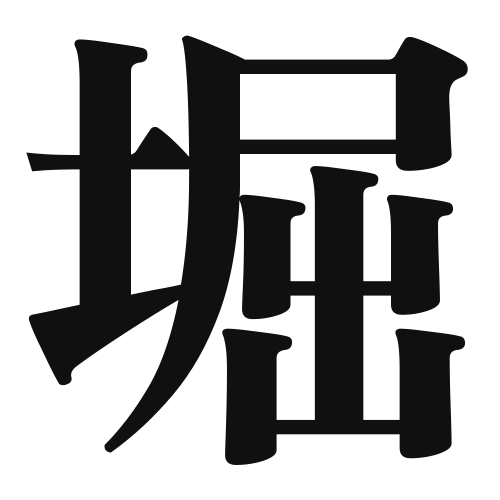1. Overview of Meaning
The kanji “堀” (pronounced “hori”) means “moat” or “ditch.” It refers to a deep, wide trench, often filled with water, that surrounds a castle or fortification for defense purposes.
2. Formation and Radical
Formation of the Kanji: The kanji “堀” is a phonetic-ideographic character (形声文字). It combines the meaning of “earth” (土) and a phonetic component that suggests its pronunciation.
Radical: The radical of “堀” is 土 (tsuchi), which means “earth” or “ground.” This radical is commonly found in kanji related to land or soil.
3. Examples of Usage
Common Words and Phrases:
- 堀 (hori) – moat
- 堀り (hori) – digging
Example Sentences in Daily Conversation:
- 「城の周りには堀があります。」(There is a moat around the castle.)
- 「この地域には古い堀が残っています。」(There are old moats remaining in this area.)
4. Synonyms and Antonyms
Similar Kanji:
- 溝 (mizo) – ditch or gutter, which is more about drainage rather than defense.
Antonyms:
- 埋める (umeru) – to bury, which is the opposite action of digging a moat.
5. Cultural and Historical Background
Relation to Japanese Culture: Moats have been an essential part of Japanese castle architecture, symbolizing protection and defense. They are often associated with historical sites and are a significant aspect of Japan’s feudal history.
Proverbs and Idioms: While there are no specific proverbs directly related to “堀,” the concept of moats can be seen in discussions about security and protection in various contexts.
